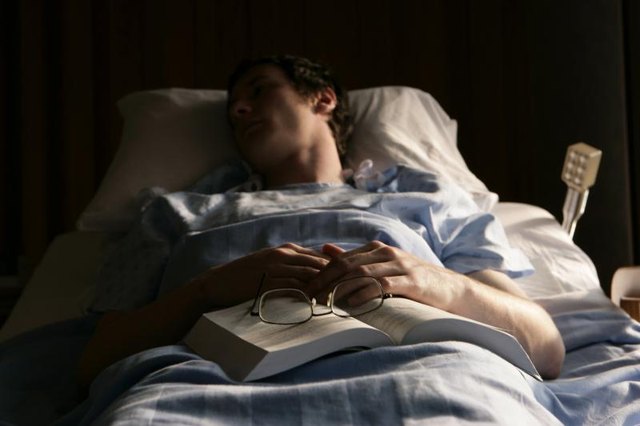
Parents often go to extraordinary lengths to ensure that their little ones are tucked into bed at an early hour. Conventional wisdom maintains that an early bedtime paves the way for a good night’s sleep, which in turn is essential for healthy childhood development. As it turns out, parents would do well to follow their own advice in light of mounting scientific evidence that an early bedtime offers significant health benefits for both young and old.
Circadian Rhythms and Bedtime
The National Institute of General Medical Sciences describes circadian rhythms as a 24-hour cycle of behavioral, mental and physical changes that respond “primarily to light and darkness in an organism’s environment.” Circadian rhythms play a key role in determining human sleep patterns, prompting the body to secrete sleep-inducing melatonin when it gets dark and to suspend melatonin production when it gets light. Failure to respond naturally to your body’s circadian rhythms -- sometimes unavoidable because of night shift work or international jet travel -- can have negative health consequences, according to a study published in the May 2008 issue of the “Journal of Circadian Rhythms.”
Early Bedtime and Mood Disorders
A team of U.S. psychiatric professionals led by James E. Gangwisch, Ph.D., conducted a large-scale study to assess the impact of parentally dictated bedtimes on the incidence of depression and suicidal ideation among teenagers. The team’s survey covered more than 15,500 adolescents in grades 7 to 12. In an early 2010 issue of “Sleep,” researchers reported that teens with parental set bedtimes of midnight or later were 24 percent more likely to suffer from depression and 20 percent more likely to consider suicide than teens with parental set bedtimes of 10 p.m. or earlier. Researchers concluded that earlier bedtimes generally lengthen overall sleep duration and thus are protective against mood disorders in adolescents.
Effect on Weight and Activity Level
Researchers at the University of South Australia evaluated the effects of bedtime and sleep duration on the weight and activity status of adolescents. They divided a study group of 2,200 9- to 17-year-olds from all parts of Australia into four segments based on sleep-wake patterns: early-bed/early-rise, early-bed/late-rise, late-bed/early-rise, and late-bed/late-rise. In findings published in a 2011 issue of “Sleep,” the team reported that adolescents in the early-bed/early-rise group demonstrated higher activity levels and were less likely to be obese than those in all other study groups.
Promotes Heart Health
Researchers from the Misao Health Clinic in Gifu, Japan, conducted a long-term study of the sleep habits of 251 healthy male workers, all under age 61, according to a report from ABC News. In presenting the study’s findings at a 2009 meeting of the American College of Cardiology, Dr. Yu Misao explained that survey subjects were divided into three groups based on the number of hours they slept each night: less than six hours, six to seven hours, and seven hours or more. Researchers found that men who consistently went to bed before midnight had healthier coronary arteries than night owls who didn’t go to bed until midnight or later. These findings held true regardless of the total number of hours the men slept.
www.livestrong.com





No comments:
Post a Comment